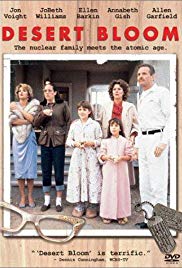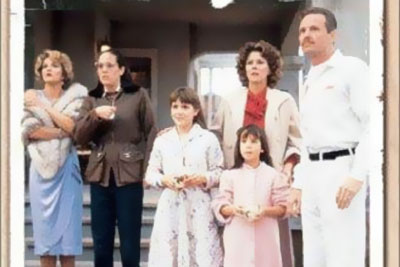After the Second World War, the Korean Peninsula was divided at the 38th parallel into a Russian Zone in the North and an American Zone in the South. In 1950, supported by the Chinese, the North Koreans invaded the South. The United Nations forces, mostly U.S. and South Korean troops, fought the war. The Korean war lasted until an armistice was signed in 1953.
For more information on atomic testing and the U.S. Atomic weapons program, see Atomic Archive.
In 1945, the United States became the first and only country to use an atomic bomb as a weapon of war. In the 1950s, the United States government conducted tests of the atomic bomb in the Nevada Desert. By 1950, the Soviet Union had an atomic bomb. The only defense suggested by the government to the public in case of a nuclear attack was to build a bomb shelter or to get below a desk or table, or flat on the ground, and to “duck and cover.” See Fat Man & Little Boy, a movie about the Manhattan Project and the development of the first atomic bomb.
In the 1950s divorces were difficult to obtain in every state except Nevada. Nevada attracted tourists by granting divorces after only a short period of residence. People would come to Las Vegas, stay in a hotel or motel for the required period, get their divorce and then leave. In the movie, Rose’s aunt is staying the required period, but since her sister lives in Las Vegas, she doesn’t have to stay at a hotel.
In this film, the mother is a “facilitator” of her husband’s alcoholism. The “facilitator” (also called a “codependent”) of an alcoholic is someone who, while protesting that they do not want the alcoholic to drink, protects the alcoholic from the effects of the drinking and acts in other ways to facilitate the alcoholic’s refusal to face up to the disease. Alcoholism is a progressive disease. Until the alcoholic stops drinking it will get worse and worse. The best remedy known for alcoholism is Alcoholics Anonymous (AA). At the end of this film, explain the concept of the facilitator or codependent to children and explain that the first step in the way out of this family’s problems is for the mother and stepfather to recognize that his alcohol problem requires treatment and that he should start going to AA or obtain treatment from some other source. (For more on alcoholism, enabling behavior, and codependence, see Codependence — What Happens When a Family Member is an Alcoholic or a Drug Addict.)
The mother also needs to face up to her problem with gambling. There is an organization called Gambler’s Anonymous for people suffering from gambling addiction. See Discussion Questions on Alcohol and Drug Abuse.
There is a high correlation between alcoholism and child abuse, both physical and sexual.



